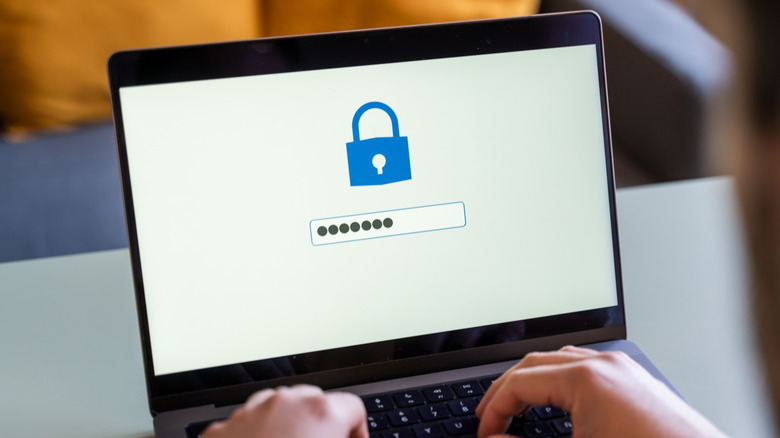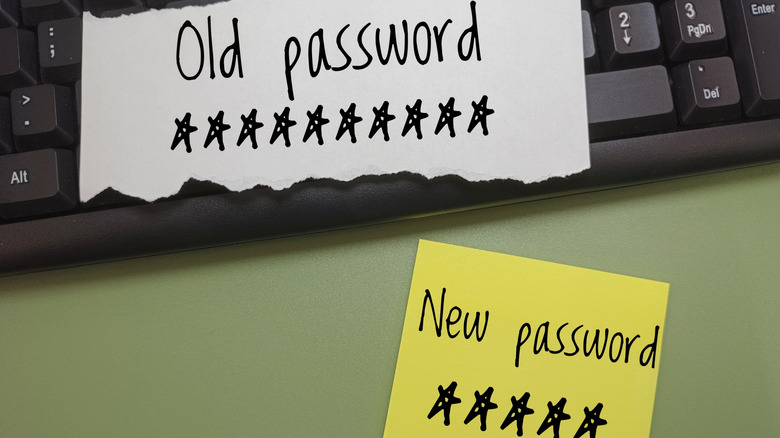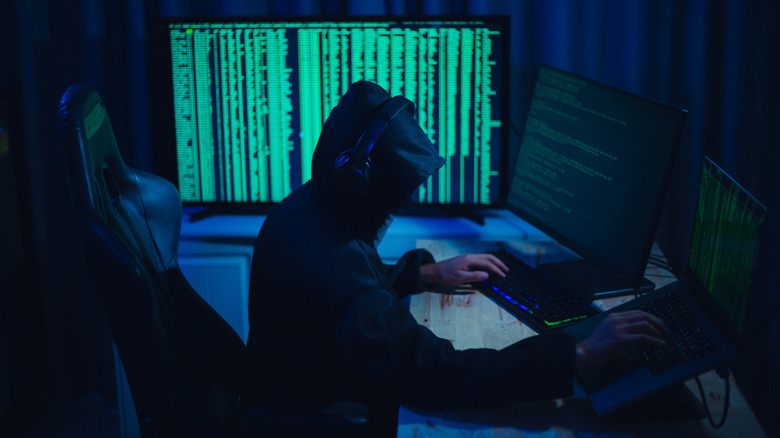Your More Complicated Passwords Might Be Vulnerable
In an age of hacking, data harvesting, and online scams of all shapes and sizes, safety and security on the web are incredibly important. Therefore, taking the necessary steps to keep yourself in a good place on the internet should be a top priority, regardless of your usage habits. Utilizing one of the many free anti-virus programs out there, setting up two-factor authentication, and being mindful of the websites and links you visit are key — as is making sure your passwords for everything from emails and bank accounts to streaming profiles are as hard to crack as possible.
All in all, crafting a perfect, unbreakable password isn't an exact science. Still, there are some things to know and misconceptions to consider when cooking up a new password. For example, while it might seem like a good idea, putting together a complicated, lengthy password in the name of security isn't always wise. The more complex it is, the more likely you are to write it down, either digitally or physically, to remember it. According to the United States National Institute of Standards and Technology, this can leave you vulnerable to a breach, as malicious parties could obtain these written reminders and access whatever you want to keep private.
So, if a long, complicated, and hard-to-remember password isn't the right approach, what is the key to creating a strong one? Here are some tips you should keep in mind when making up passwords from here on out.
What goes into a strong password?
Given that there are fewer benefits than downsides to complicated passwords, you should consider other strategies to keep your data safe. The first is to rely on length rather than complexity, as a long password isn't necessarily one that's difficult to memorize. The Cybersecurity and Infrastructure Security Agency recommends they be at least 16 characters long for maximum effect. To pad this character length out, it's a good idea to make strings of words into passwords. Again, though, the key is not only to make the password difficult to crack, but also to make it easy for you to memorize, so you don't have to rely on written help.
Arguably, the biggest component to smart and safe password creation is actually coming up with unique ones. If you need a new password for your email, bank, and Netflix account, for example, you don't want to make them all the same or too similar. Should one be compromised, you're giving hackers a strong starting point should they choose to go after your other accounts. In embracing variety in your passwords, there are also some commonly hacked passwords that you shouldn't use; otherwise, you're unfortunately setting yourself up to have your accounts compromised.
Sadly, even the most diligent of password creators can be targeted and victimized by hackers. Thus, it's worth knowing what to do should one or multiple of your passwords be stolen.
Acting when your password is compromised
As evidenced by some of the worst data breaches in the history of the Internet, no one is completely safe from hackers. When you least expect it, your passwords could be compromised in such an event, forcing you to take defensive actions as quickly as possible. To check if your password has been compromised, check it on the "Have I been Pwned?" website. If you suspect your password and, therefore, the account attached to it, is compromised, the first thing to do is change that password. Using the aforementioned tips, you want to make the new one as secure and distinct from the hacked one as possible. You should also change any other passwords you're concerned could have been compromised, even if they show no sign of such danger.
From here, you've done pretty much all you really can do with your compromised password and account. What comes next is, unfortunately, a lot of waiting and watching without much action. Regardless of the nature of the account that has been hacked, you want to keep a close eye on the activity it records. In the case of a bank account, this can manifest in unusual login alerts and, worst case, unverified transactions you didn't make. Social media accounts can lock you out, with recovery info changed without your knowledge. Should any such issues arise, contact the website or company in question to get to the bottom of the situation and determine next steps.
This is a highly technological era, where nefarious individuals can negatively impact your life from a distance. Never take password creation lightly, regardless of the account, or else you may have to contend with serious problems.


